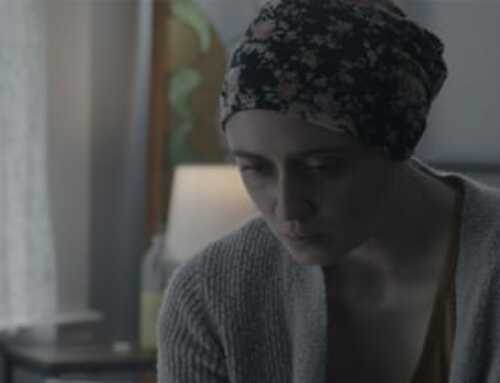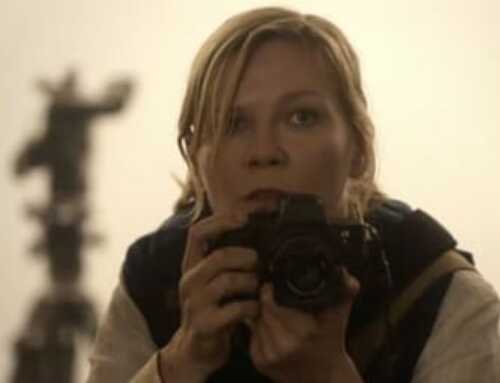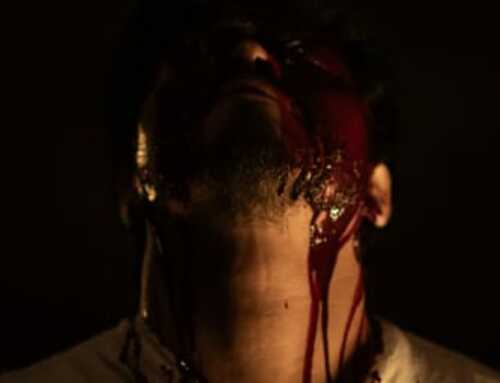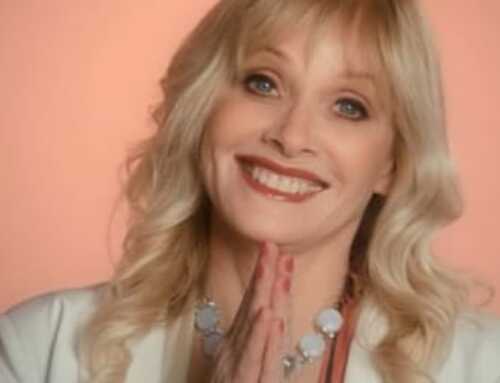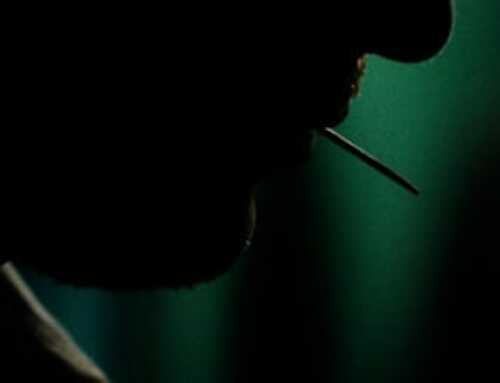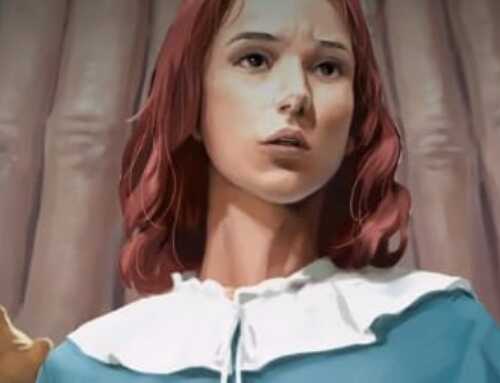YOU SHOULD HAVE LEFT is a new psychological horror-thriller from writer/director David Koepp (Jurassic Park, Panic Room, Spiderman) starring Kevin Bacon as a screenwriter desperately trying to revive his relationship with his wife Susanna (Amanda Seyfried) during a stay at a mysterious Airbnb. Things go from bad to crazy to horrific as the house begins to play with its guests revealing their darker nature. A simple premise. Yet along with the author of the original novel and co-screenwriter Daniel Kehlmann, we get a rather stylishly simple descent into inner madness.
HorrorBuzz had a chance to sit down with Koepp during a virtual press junket for the film to ask how the film came together. We were also curious as to how a film that slides into metaphor so seamlessly is made into something that is not only approachable but entertaining and most importantly, scary. Koepp, who has made a career on elevating simple ideas with a bit more substance was eager to share how the project came to be along with some sage advice for indie filmmakers during this creatively precarious time.
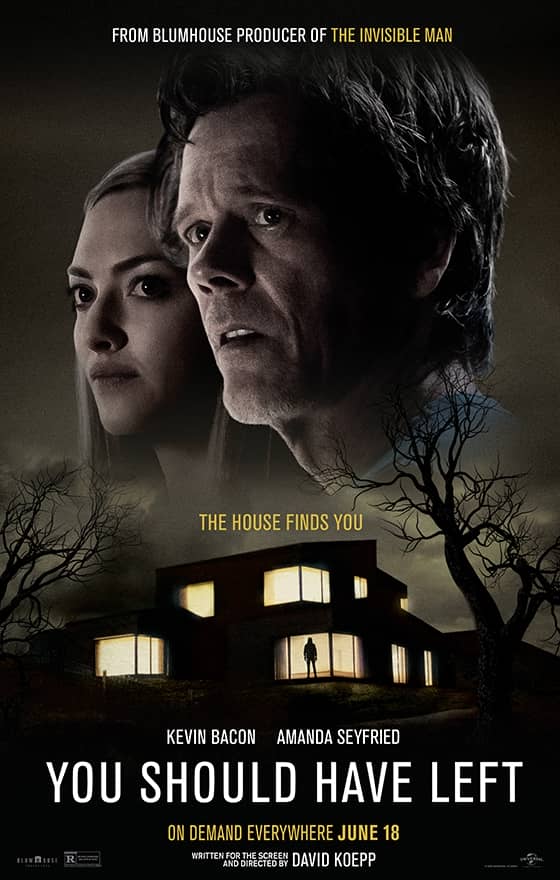 HorrorBuzz: David, first of all, thank you for taking the time.
HorrorBuzz: David, first of all, thank you for taking the time.
David Koepp: Well, thank you.
HB: You seem to be drawn to some pretty flawed protagonists. Any reason for that?
DK: Well, you can’t make stories about how great everybody is. I feel like not only am I drawn to flawed protagonists but the “creepy shit happens in your own house” stories seem to be right up my alley too. I used to worry about it. I was talking to Brian De Palma about it one day, and he said, “it’s called ‘who you are’, live with it! You know how many women I’ve killed in movies?” Yeah, I know, Brian. (laughter) So you’re drawn to it, you’re drawn to the kinds of stories that you want to see. And I’ve always my favorite movie of all time is Rosemary’s Baby. This idea that the person you should be able to trust the most is untrustworthy. And that the place where you live has secrets and levels that you don’t even know about, those are really appealing to me. I don’t know why. But that’s my jam.
I think that the reason why I connected with it is that it’s just so fundamentally disturbing. There’s supposed to be one place that you’re safe, which is your home, right? You know one place, one person you should trust which is yourself, and what if both of them are no damn good.
The first half of the movie does a lot of laying out not just who the people are, but what the place is. And what is where. If you notice there are longer takes in the beginning of the movie. The camera shows you “look this is always here” and it follows a character and says (The floorplan) leads in an L to this hallway, which is here. It’s really painstakingly laid out. Well, hopefully not painstakingly but methodically laying out what is where so that the second half of the movie can then violate all that and say “Nope! That always leads to this and this was under the stairs and you didn’t even know And that extra thing, you know, suddenly appeared here.” I wanted the second half of the movie to feel like you just… That feeling you get when you wake up in a strange hotel in the middle of the night and you have to go to the bathroom and you walk into the wall because you thought that’s where the door was. And you remember, “Oh, I’m in Chicago, and it’s over there.” That’s the feeling I wanted to have for like 45 minutes.
HB: How do you develop a story that is so metaphorical for a literal setting. Is it easier or a bit more difficult?
DK: I think you find those as you go? The times when I started out writing, saying “Okay, so here’s what the story is about.” That the script that’s usually no damn good. You have to start with characters in a story premise that are interesting to you. Then as you continue to explore, you find the metaphorical levels come with each draft. The way this movie grew up, Kevin and I started with the idea of something scary set in a marriage. And then we came up, you know, I wanted to explore this age gap that we see so often. Not just in Hollywood movies, but in real life between, you know, rich men with women that are far too young for them. Every good scary movie has to have a very combustible central relationship. So I wanted to see that and, and then, you know, the idea that this house has subterranean levels that you didn’t know about, that sort of naturally extends to the characters having subterranean levels we didn’t know about. That happened over the course of writing and over the course of shooting. You know, you gotta let that stuff come naturally.
HB: I was gonna ask about how, since this was you, you wrote and directed, how much of the writing happens on set or in post, you know, with those, like, those little flourishes where there’s suddenly a shadow in a hallway or, you know, little blips of things happening?
DK: Well, one thing that’s, I mean, a lot you plan for, of course, but then post, you know, the editorial phases are as creative as the initial writing of the script. You know, you’re rewriting the movie in post and, and not just adding things but digging things out, creating things that weren’t there. The way Blumhouse works that I really love is you have your initial shoot, we shot for 26 days, and then you take a look at your movie. You say, “Okay, what else does this story need?” Then we planned for additional days of shooting and I wrote some more stuff. We had to then wait six months to do our four days shooting because Kevin had gone off to do City on a Hill and was growing this enormous mustache. I was like, “really, we got to wait six months for your mustache?” We took a break for six months and I ended up saying, “Actually, I want to write this and I want to read. I rewrote it three, four times, and then went and did this additional thing. So all told, it all still only took 30 days of shooting. But you in a sense got to workshop the movie through a couple of different phases. It’s something that is very Blumhouse.
HB: You said you liked working with Blum house on this project. Is that one of the reasons why it was such an appealing project?
DK: Well, we wanted to do a scary movie of a, for a certain amount of money. And, you know, they’re the ones who know how to do that. I also always want to learn new things. Jason, you know, really clearly had a perspective and a philosophy and I wanted to work with producers who have, you know, a way of doing things is different from mine and hopefully learn from them, and I did. They seem to plan to spend a certain amount of money and then go in and do more. That’s part of the approach. I remember Woody Allen used to work that way. Also, back, you know, in like the 80s 90s. There was a certain amount of money budgeted for reshoots from the beginning because he wanted to discover the story as he went.
HB: That’s fascinating. And I mean, obviously, it’s a smart way to go because they (Blumhouse) are doing so well. You also worked with Kevin Bacon before, so was this something that had been percolating?
DK: We did Stir of Echoes 20 years ago, but had stayed friends ever since. We’ve talked from time to time about doing something but you know, never quite clicked. He brought this up. One day he said, “Let’s do another scary movie, not too expensive set inside of marriage.” And I said, “Okay, I’m in. Let’s figure it out.”
HB: Incidentally, why Wales? Maybe I missed it, but I was like, “Was there a reason that I didn’t catch here?”
DK: Well, she’s (Susanna) going off to shoot a movie in London, right? Theo wants to fly over in time adjust beforehand. He wants to get her alone in the country, somewhere because he’s got suspicions. The real reason if you must know, I was living in London for about four years with my family. We moved back just recently and I was fascinated by Wales and Ireland. I just thought they were gorgeous landscapes and remote and somewhat strange in that they’re part of this English speaking world but there’s this whole other language. I felt like we’ve seen Ireland a lot, but we haven’t seen Wales. As soon as you drive into it and you start seeing the street signs with the really long words with four or five vowels in a row, you know, it feels very foreign all of a sudden.
HB: Do you prefer to work collaboratively with other writers on projects? Or do you like to work on your own?
DK: I like to work on my own. The term writer’s room sends shivers down my spine. I love to work with a guy named John Camps. We’ve written a bunch of movies together, and you know, we work together from time to time, but we also both enjoy writing by ourselves a lot. Movies have a lot of collaborators and I feel like if you can cut down that number, just a little bit at the beginning, it’s not a bad idea. Normally I work with the director, cast members, their studios, there’s, you know, there’s a lot of people who were gonna put their opinions and so I’ve always kind of wanted to get it as far as I can. Can on my own first.
HB: What is your one bit of advice for indie filmmakers coming up trying to sell their films, especially at this time? What is the one bit of wisdom that you can give them?
DK: Just keep writing. I mean, writing is the one thing we don’t need anybody’s permission for. It’s the thing we can do right now. Everybody else is stopped from doing their jobs yet again because they need permission to do it. This time we can keep writing. Don’t write just one and say this is one I must make this and no matter what. Be determined to make that, but while you’re waiting write something else. Take advantage of the thing that we have, which is the freedom to work and keep going. That’s my advice.
YOU SHOULD HAVE LEFT – On Demand Everywhere June 18


